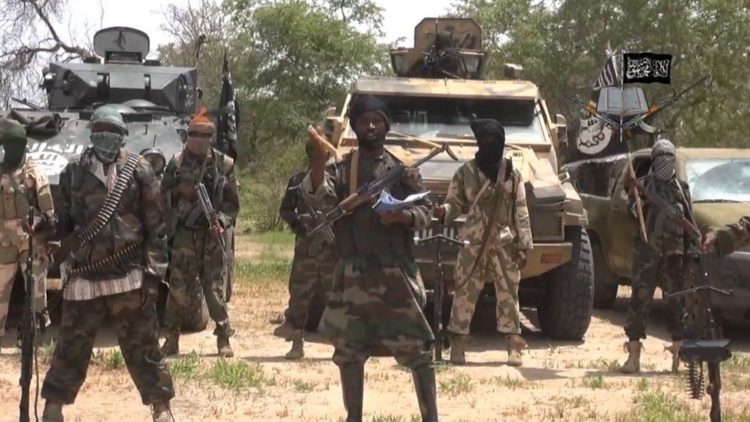Ansaru, the rise of the vanguard for Black African Muslims
Condemning Shekau’s massacre inclusion of Muslims, a portion of the group defied the ruthless leader between 2011 and 2012. This faction, led by Khalid Al-Barnawi and Mamman Nur, has disagreed with Shekau’s extremist stances and created Jama’at Ansari Al-Muslimin fi Bilad Al-Sudan, better known as Ansaru, in affiliation with leaders of Al-Qaida in the Islamic Maghreb (AQIM).
Unlike Shekau’s, Ansaru’s main objective is to restore the “dignity of Muslims in Black Africa” and revive the Sokoto Caliphate in Northern Nigeria—the largest known empire to reign in Africa during the 19th century. The group gained its reputation as abductors that targeted Western foreigners in Kebbi, Katsina, and Bauchi, importing them to AQIM. Its most notable kidnapping was in February 2013, when the group took a French family of seven in northern Cameroon.
Despite declaring its independence in 2012, Ansaru continued to work with Boko Haram until the former slowly and eventually halted its insurgent activities in 2015. The group is now mostly dormant, but some of its members continue to spread its propaganda.
ISWAP, an ISIL-aligned terrorist group
Among the factions of Boko Haram, the Islamic State of West African Province (ISWAP) is probably the largest to emerge.
After AQIM abandoned Shekau, he pledged allegiance to his former ally’s biggest rival, the Islamic State (IS). After AQIM left Shekau in the early 2010s, he vowed loyalty to his former ally’s biggest enemy, the Islamic State (IS). In 2015, following the declining activities of Ansaru, its leaders Khalid and Nur reunited with Shekau.
That same year, Shekau received the welcoming approval of IS Caliph Abu-Bakr Al-Baghdadi and proclaimed the former as the “Waly” (leader) of the newly established ISWAP. Al-Baghdadi remained skeptical of the ruthless JAS leader’s abilities, especially with his history with AQIM.
After receiving a plea letter from Khalid’s son, Musab al-Barnawi—who pinpointed Shekau’s flawed ideologies and incompetent leadership skills—the IS ruler turned over the leadership of ISWAP to Musab alongside Nur. Thus, again, destroying the rekindled relationship with the Boko Haram leaders.
Nonetheless, both groups operate almost identically in terms of harassing Nigerian citizens, including indiscriminate killings, raiding produce from villages, abducting women and children, and rebelling against the Nigerian government forces. A distinct difference would probably be that ISWAP executed more sophisticated, complex, and organized attacks than JAS.
BREAKING: Terrorist burn hospital, girls’ college in Borno
Terrorists suspected to be members of the Islamic State of West African Province, ISWAP, have on Wednesday morning attacked Damboa Town of Borno, in North East of Nigeria. pic.twitter.com/2vJcUwVew8
— YEN (@YerwaExpress) April 6, 2022
Explosion Rocks Niger State As Boko Haram Launches Attacks | Sahara Reporters https://t.co/nuyiVWoiLZ pic.twitter.com/rCGpNShgF7
— Sahara Reporters (@SaharaReporters) February 26, 2022
Insurgents killed over 100 people in Nigeria's Borno state. Attackers targeted farmers in rice fields, slitting their throats. At least 10 women are reported missing.
Attacks by militant groups Boko Haram and ISWAP have killed over 30,000 since 2009 and forced 2 million to flee. pic.twitter.com/Faosxb6tUG
— AJ+ (@ajplus) November 30, 2020
Both factions have also lost men throughout the years as they continued to get in each other’s backs and necks, and this back-and-forth made them each other’s closest rivals—and menace in Nigeria.
***
According to Global Terrorism Index 2019, there has been a significant decline in Boko Haram’s terrorist activities since its peak in 2014. But it remains the deadliest ranking fourth in the world and the top in Sub-Saharan Africa.










COMMENTS